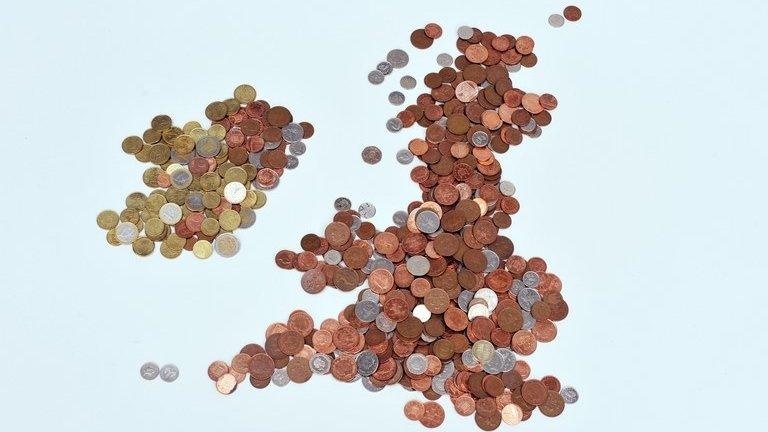General election 2017: Welsh Voters' coverage confusion?
- Published
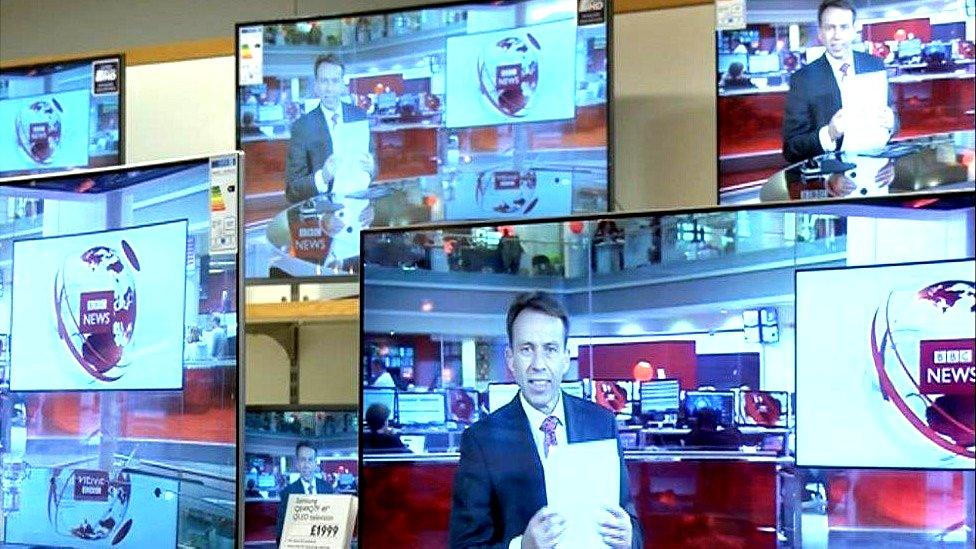
Since the general election was called, journalists have been covering every step of the campaign. But are voters in Wales confused by the coverage?
Some argue Wales has been short-changed, with elements of the media forgetting to mention that not all the big announcements apply in every part of the UK.
Others have suggested politicians are playing into a confused narrative, with announcements in Wales that will not apply here, and manifesto pledges featuring campaign material that are in areas already devolved to the Welsh Assembly.
Sali Collins was a manager at BBC 5 Live and Radio Wales, and now lectures in journalism at Cardiff University.
She said: "It's very difficult for the audience, even though devolution has been with us for such a long time, to really understand that 'that bit doesn't apply to me here in Wales'."
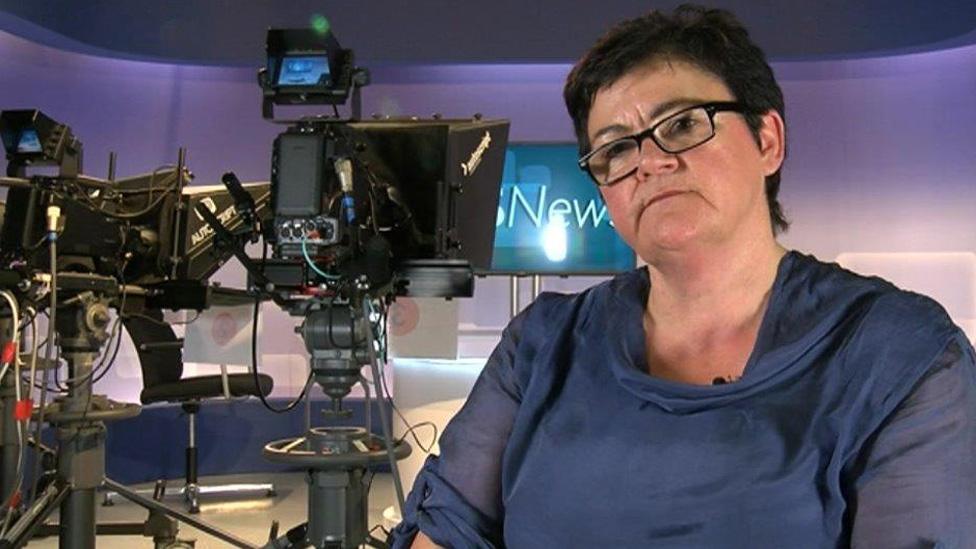
While audiences have a vast choice of news outlets, a small number of sources attract the majority of viewers and listeners. The most popular TV news programmes have come under scrutiny by academics hoping to shed light on how the election is being reported.
Research by Cardiff University , externalfound that, during the first fortnight after the election was announced, the UK's network television news programmes focused on three main areas.
The first was the campaign itself, the second was Brexit and the third was the NHS. Two parties have shared much of the broadcasters' attention - the Conservatives and Labour - according to researchers who studied the output of network BBC, ITV, Channel 4 and Five news programmes.
The study found there was a lack of detail in discussing specific policies, with some broadcasters fairing better than others.

PARTY LEADERS ON THE CAMPAIGN TRAIL IN WALES
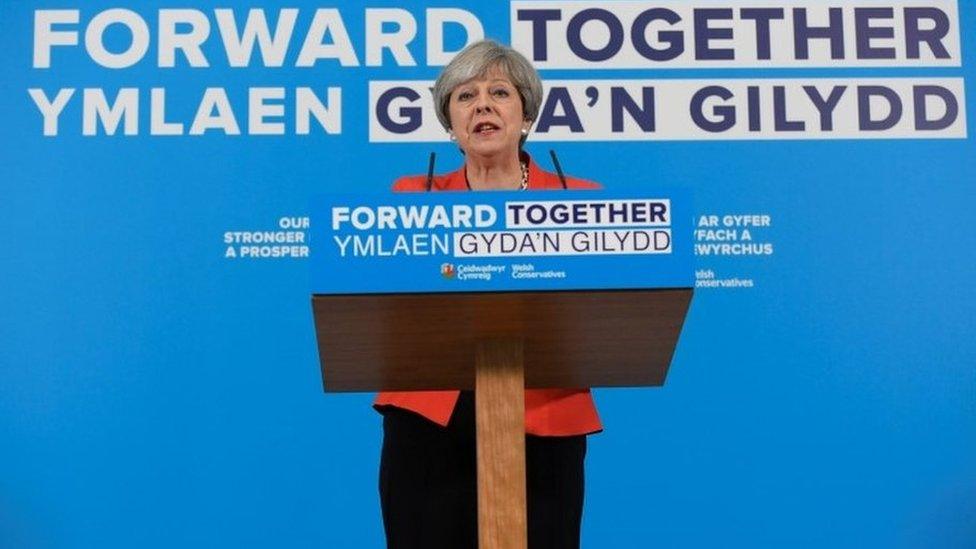
Theresa May launching the Welsh Conservative manifesto in Gresford
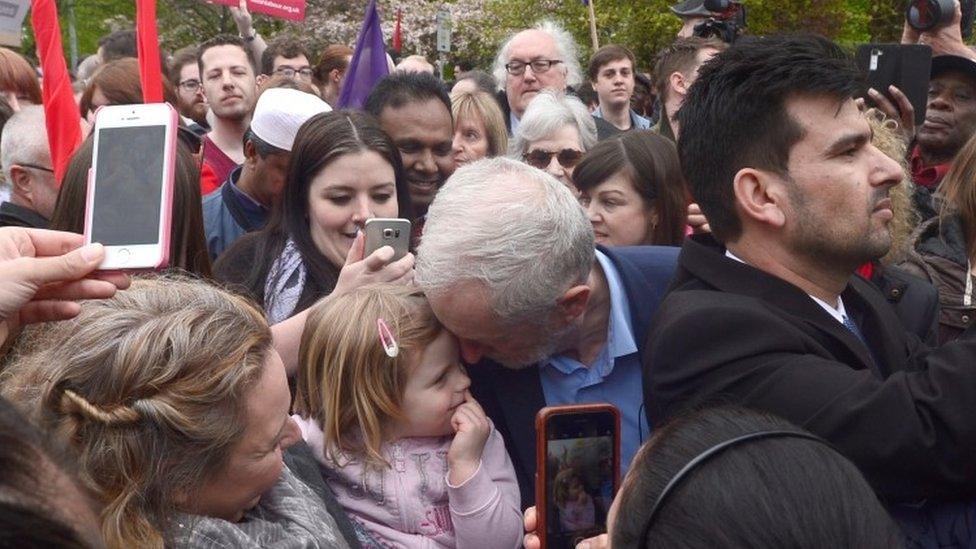
Jeremy Corbyn at a Labour campaign rally in Cardiff
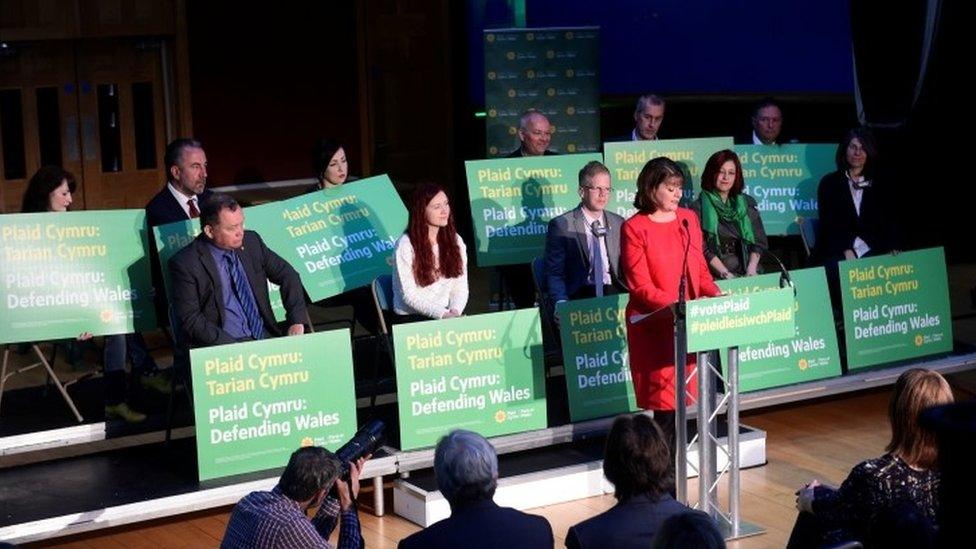
Leanne Wood and Plaid's manifesto launch in Rhondda
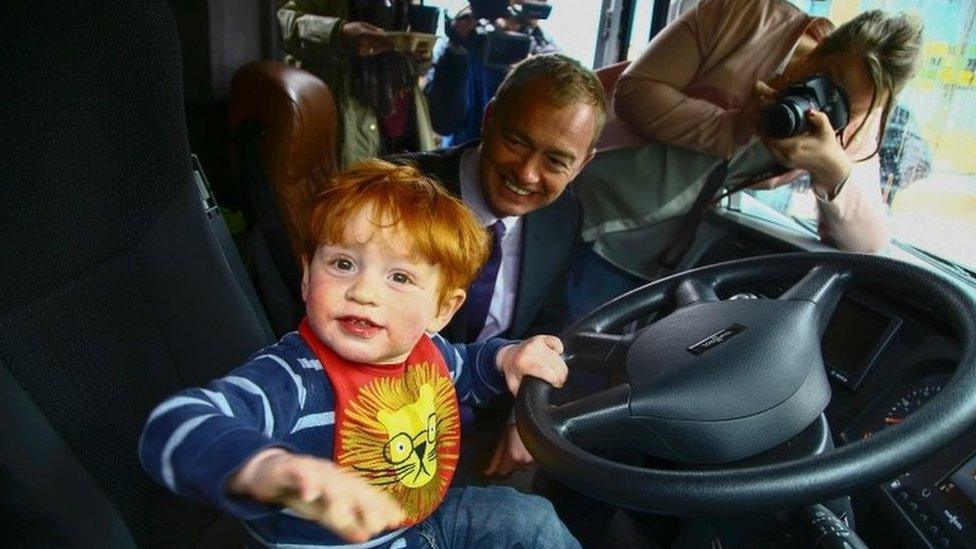
Tim Farron on the Lib Dem campaign bus in Cardiff

The situation could be made clearer, Ms Collins said, if broadcasters were more consistent in sign-posting which policies were devolved - and therefore not necessarily affected by the outcome of the UK general election.
"Although the British media think they do it, by saying 'in England', I'm not sure how much of the Welsh audience genuinely realises that certain areas, like education, are devolved," she said.
She added politicians should also be clearer when announcing policies that may not apply in all parts of the UK.
"It's not just the media's responsibility, but politicians should also shoulder some of the responsibility," she said.
"Sometimes it's probably not in their favour to try and do that. If you've got a message about giving more money to the NHS, it doesn't matter sometimes that it's not something that could affect you in this country."
Political lobbyist Daran Hill agreed politicians were partly to blame and argued some were deliberately muddying the waters.
Writing for the Institute of Welsh Affairs blog, external, he said: "They are feeding the confusion by not using a simple phrase appropriately and consistently: 'in England'."
While focused analysis, and traditional campaign launches, are a staple of the coverage on television and radio, social media is a more frenetic source of news, satire and political posturing.
It can also allow a more focused debate about policy, and an opportunity to flag up the occasions when devolution can expose the irrelevance of some big campaign moments.
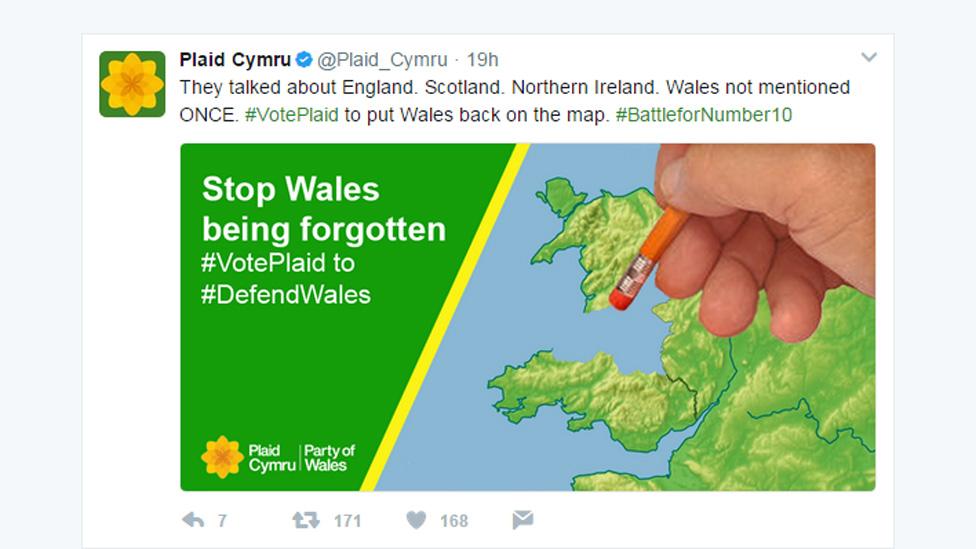
A critical Plaid Tweet during this week's Meet May-Corbyn TV broadcast
Blurrt, a Cardiff-based company which monitors sentiment on Twitter, has monitored the popularity of parties and policies during the election campaign., external
Its analyst Owain Lewis said the platform was an unruly media outlet, with users often following other accounts that mirror their existing political views.
He said: "It definitely is advantageous to smaller parties to get their messages out. Whether or not that gets beyond their initial supporter base remains to be seen.
"I think it does have an effect, especially when you consider the president of the United States tweets out his policies.
"And the idea of 'fake news' does, ironically, strengthen the hold of Twitter because people want to see things as they are happening, as they are emerging, in real time."
Critics hope the amount of detail about devolution will increase in the last days of the campaign. But it could involve a change in behaviour by politicians, as well as journalists.
- Published26 May 2017
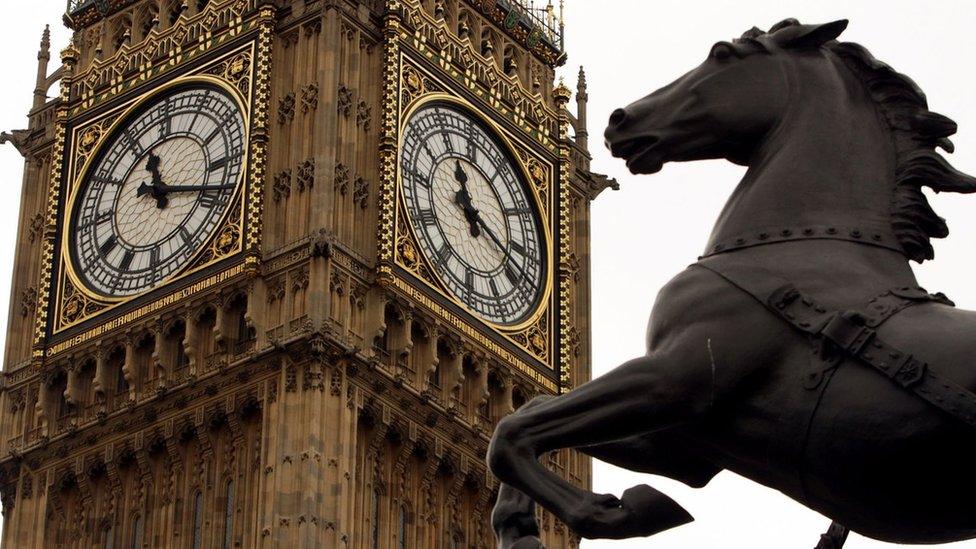
- Published30 May 2017
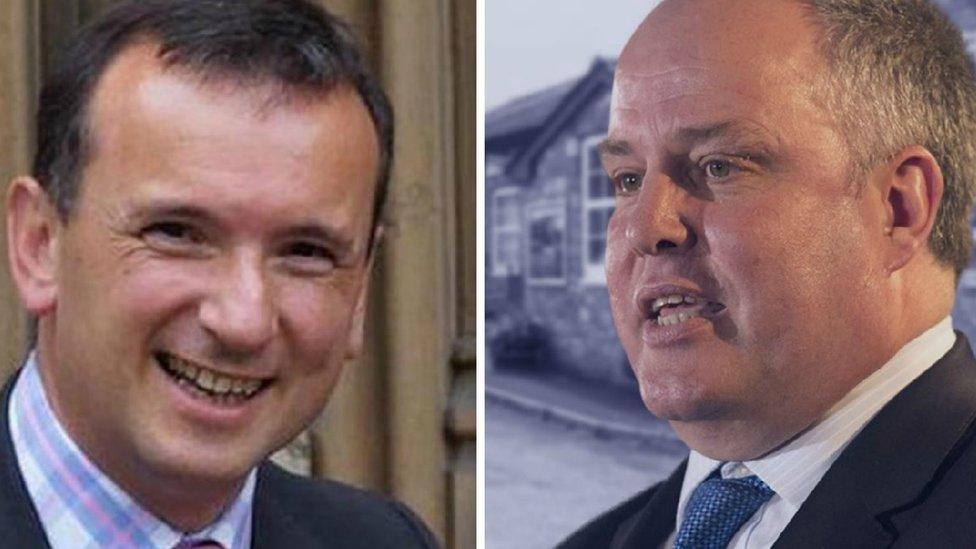
- Published17 May 2017
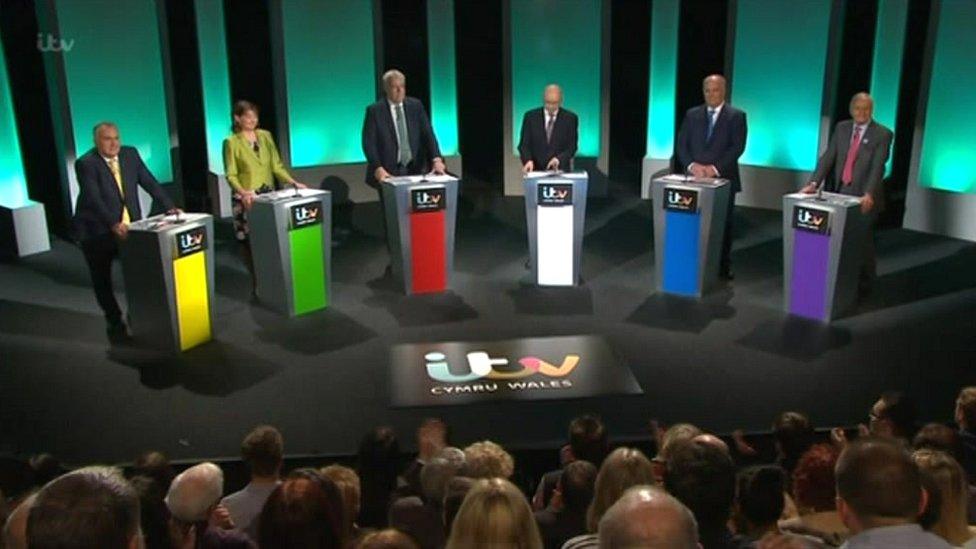
- Published9 May 2017
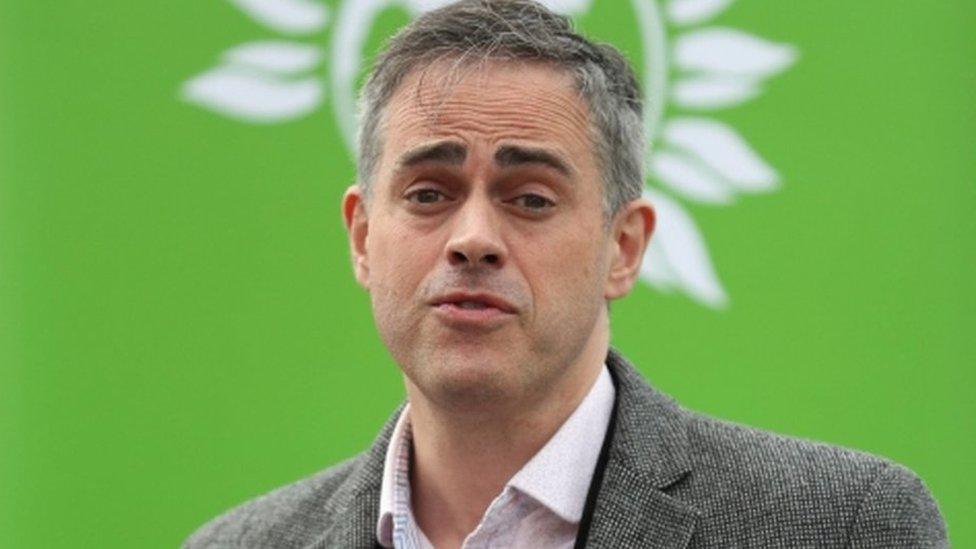
- Published8 May 2017
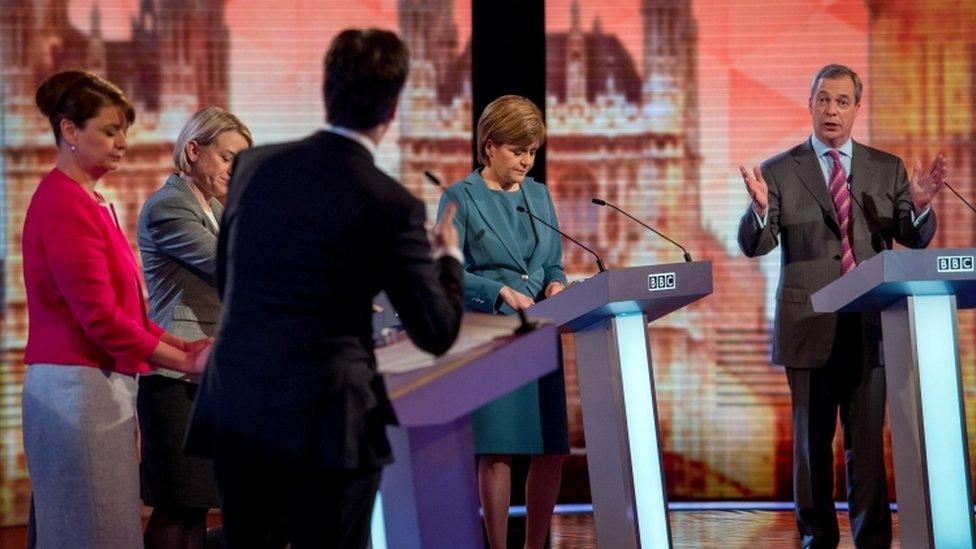
- Published18 September 2016
